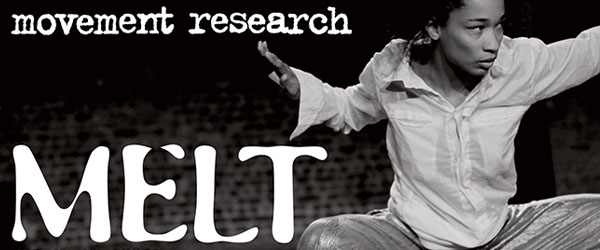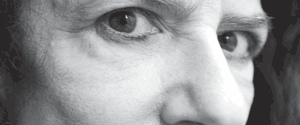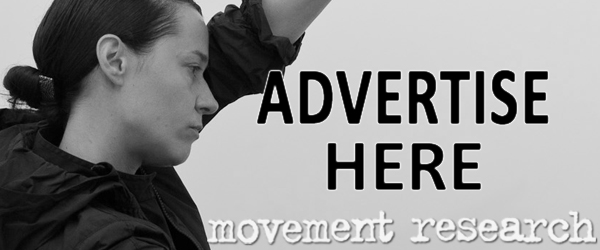Critical Correspondence
- East Village, La Mama, Love Story, Palestine, Penny Arcade, School of Hard Knocks, Yoshiko Chuma
- Comments Off on “Firmly Mid-Career”: Yoshiko Chuma in conversation with Penny Arcade
- Conversations
- 5.6.12
“Firmly Mid-Career”: Yoshiko Chuma in conversation with Penny Arcade
Penny Arcade and Yoshiko Chuma discuss Chuma’s new work Love Story, Palestine, which will be at La Mama May 9-12, 2012. Arcade and Chuma discuss Chuma’s yearlong documentation process in Palestine, the sensation of border crossing and wanting to “stay.” This interview was conducted at the suggestion of Tatyana Tenenbaum, who is a performer in the work.
Interview date: April 4, 2012
Download a PDF of this conversation
Penny Arcade: I’ve known Yoshiko’s work since 1981 or 1982. Yoshiko and I don’t have a personal relationship; we have a collegial relationship over many years of knowing each other’s works. Yoshiko is one of my favorite artists because I’ve seen the work over many years and then when we meet in the street we have the same conversation: “What are you doing?” “What are you doing?” This was a very East Village type of relationship that people had—about the work.
Your work took a definitive change. You were always making work in New York: Yoshiko Chuma, Lower East Side. And then at one point in the late 90s you started to go into other cultures. There was a certain period when the work became very political.
Yoshiko Chuma: I was very influenced by some of the periods in Japan from 1969-1973/4. I was very aware of the Vietnam War, and difficult conflicts with countries that were always connected to the Soviets, and always connected to the United States. I went to Budapest in 1986, the first American choreographer to go there. I have significant and very deep relationships with Estonia and the three belt countries—they all used to be Soviets.
Penny: When did you go to Estonia?
Yoshiko: 1992.
Penny: I see you as a person who always has a lot of emotional control in your work. But since you’ve been to Palestine and you’ve been working on this project in Palestine, I see you having less emotional control over yourself. You’re more affected by the situation in Palestine. What prepared you?
Yoshiko: The border is very important. The first time I passed the border through authorities, I came from Japan to here. That was May 31st, 1976. You said all [art] is memory. The memory is, you pass by the authorities. Say, I’m in the airplane, inside. You pass an authority to get in. So that was one significant memory. You’re going to get out, and there is a totally different visual image. It’s almost like stepping into a movie location—and I like that! I have been to Estonia, Lithuania, Poland, and Czechoslovakia—that area at that time was very different from where I lived. That made me curious. But that curiosity was before I was thinking about making a piece or not.
Penny: So, number one—you’re an outsider, you’ve been in America for over 30 years, you’re an artist who has worked in all these different countries with the people of those countries over a 25 year period. Now, the culmination of this work—of your whole life, really—is this piece you are making in Palestine. You are now firmly a mid-career artist. How do you see the work all along leading to this work that you’re doing now?
Yoshiko: I have been to four or five different countries and I have been very committed to this project over the 20 years. But it’s a very challenging experience that over the past 60 years the situation in Palestine is not getting easier. What we know, we know only through media. With Love Story, Palestine, I have lots of questions about how you present this work in the performing art formation. I have done the Macedonian production, Romanian production, Manipur production—many of these productions I have done. I always believed that I had to bring that “product,” the “production,” to [New York]. But through my experience in Palestine I do not have that desire. I have to move on. How important is it to show documentation? And how important is it to give visual ideas—where is Ramallah? My challenge is the documentation-of-the-documentation-of-the-documentation. Even this interview—I can document it, and I can bring it into my piece.
Over one year I documented all the time [in Palestine]—document of the conversation, document of the landscape, document of the action, and document of the dance. I am very scared that my document is my experience—but that is not going to be completely the definition of Palestine. On one hand, for people all over the world, daily life is not that different. I would like to present Love Story, Palestine as: they are not much different than we are. I am kind of chasing a cliché of the cultures, which we are passing through always. Yes, I come from Japan. Sometimes people say really simply, “Oh you are Japanese, you are a feminist, a woman, strong, you could not live there so you had to move here.” No, I’m not in that category at all. People sometimes put labels.
Penny: Make everything simplistic.
Yoshiko: I think Love Story, Palestine is really challenging [this]—I want to say something about the situation in Palestine in the present. I don’t think my performance Love Story, Palestine is going to change [that].
Penny: No, but you’re making your story—you’re making your story with Palestinian artists. They are in your story. They’re making their story—and we’re seeing them in your story. I think for me that’s what’s interesting. I’m also one of the few artists that everywhere I tour I hire dancers. I don’t always bring my own people. I work with people that I find, and that’s what makes everything different. When you’re in a place, presenting work with the people who live there, it becomes a very different kind of situation. It’s not like you’re the expert artist coming from America, making a statement on the place. You’re collaborating with the people to tell a new story, which is the story of that moment. But the history is also there—your history is also there, but also the possibility that doesn’t exist yet, is also there.
Yoshiko: Time and space are sometimes not chosen by me. I had the subject of Palestine, so I tried to get to Palestine? No. I might go to Colombia—it’s almost by chance. I don’t have a beginning of a project. It just all comes to pass that I meet interesting people. Then, “Okay, I’ll visit you.” It’s almost not a project. But I take that chance because I’m very interested in food and I’m interested in—well, not so much anymore—but I used to be very interested in going to the nightclub.
I’m always very curious, basically. I came from nowhere. I do not know what is academic, and what is not academic. I do not have “rules.” I don’t have lists. But I have never really been in someone’s company so I have no idea what other people do. So I do not compare. By 1980, I noticed that I don’t like to tour much. It didn’t really suit me. I liked to stay…
Penny: Me too.
Yoshiko: Physically and mentally I was so curious about being relocated. In 2006, the first time I went to Amman, I knew the name because in the Iraq War you hear the name a lot: “News came from Amman…” I was walking in Amman and thought, I’m in Amman. Since then I am very intrigued in the challenge to locate my life in Amman and Ramallah. [In a] situation to make my work, I am always very scared, very unknown. Sometimes I don’t have any confidence. Many of the artists who I collaborate with have experience. And they will be very confused at first. Because compared with their experiences of being in productions, it’s very different. They have to work very hard to adjust to my production. But they always have some kind of excitement to be in my piece because it’s very unknown.
Penny: It’s funny. You and I have so many strange things in common that I didn’t know before. I also like to go, and I like to stay. I don’t like to move around a lot. I like to be with the people. I like to live there. Also these other elements—I’ve never worked in anybody else’s work except my work. For independent artists, that’s a big deal. You weren’t Merce Cunningham’s principal dancer in 1975 and you’re 25 and leaving to make your own work. You’re making your own work out of your own.
Yoshiko: Cunningham dying very much influenced me. And also that time of 2012—Bill Rice died, Tom Murrin died. I lost a lot, my mother, all my family is gone now. Before I had lots of chances to see people and I didn’t think about if I would be able to see them. And that is going to twist my brain… then I start connecting. I have maybe 100 friends in Ramallah. Every one has so many stories. And each of those stories I really want to listen to. I don’t need to say my story. In Palestine they are talking about: number one, about the family; number two, about the family; number about…
Penny: The family.
Yoshiko: Because they have less chance to be together. Â That is such a beautiful human emotion. These kinds of very sensitive one-to-the-other human relations—if I think back in my work, I have never felt this much. And, you know… I love Palestine.





